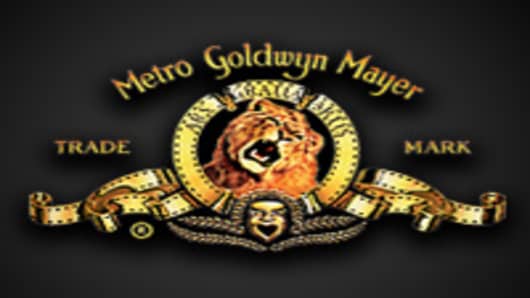Metro-Goldwyn-Mayer said it's considering a sale or a merger as it evaluates "strategic options," raising the question: what does this mean for the future of the industry?
Whether or not MGM finds a buyer and what kind of price they attract will say a lot about the value of content .
The studio owns a owns a whopping 4,000 film library, including the rights to "James Bond." But as DVD sales continue their decline, without a robust digital revenue stream to fully supplement the loss, what is content really worth? And who could benefit most from access to this content?
Estimates for the studio range from $1.5 billion to over $3 billion. That's quite a discount to the $5 billion spent to take the company private in 2004, by a consortium including Sony , ComcastProvidence Equity Partners, Quadrangle Group and TPG. MGM's owners took the company private when DVD sales were still robust and expected to continue to throw off plenty of cash for decades to come.
Not only is the DVD cash cow ailing, but plans to produce a new slate of films fell flat when MGM's only film this year, "Fame," bombed at the box office. Now the company is struggling with $4 billion in debt, and though its lenders have agreed to allow the company to skip payments until the end of January, the pressure is on.
So who would want to buy the library and the rights to remake those movies? Time Warner has the cash and its studio Warner Brothers already partnering with MGM to co-produce "The Hobbit" movies. It's also worth noting that Warner Bros. has the biggest marketshare in home video of any of the studios, which gives it more leverage and power with retailers and distributors. News Corp, which also has some cash on hand, already distributes MGM's home entertainment, so they have an "in." There are also a number of private players who are lurking on the sidelines, waiting to see what kind of deal they could get on the library.
The perceived value of MGM hinges on the buyers optimism about the DVD market, and confidence that digital revenues will provide a serious new business model. It also depends on the price. If the price is low enough, buying MGM could provide fairly steady though declining cash flow from home entertainment and the licensing rights for its content. The company's under the helm of Stephen F. Cooper, who set the gold standard for turnarounds when he ran Enron and Krispy Kreme Doughnuts. We'll see if his help restructuring the company can inspire confidence of potential buyers.
Questions? Comments? MediaMoney@cnbc.com



